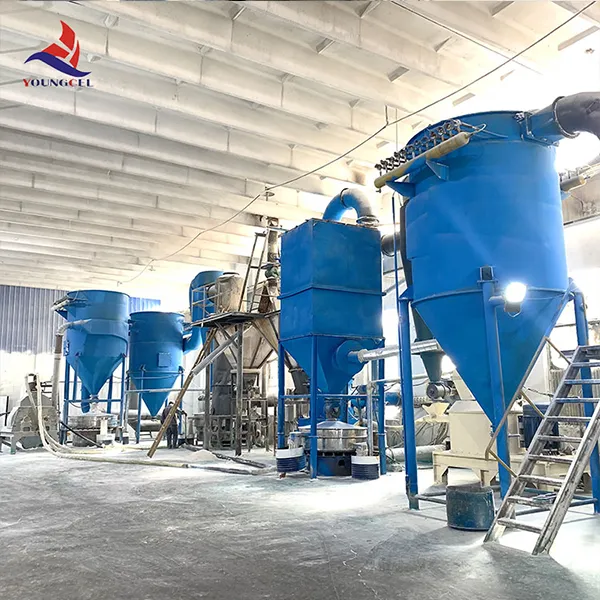The Role of Cellulose Suppliers in Modern Industry
Cellulose, a vital organic polymer, serves as a fundamental component in the cell walls of plants, making it one of the most abundant biopolymers on Earth. Its applications span a multitude of industries, including textiles, food, pharmaceuticals, and biofuels, driving the demand for reliable cellulose suppliers. This article explores the significance of cellulose suppliers, the various types of cellulose available, and the factors influencing their selection.
Importance of Cellulose
Cellulose is a versatile material with unique properties. It is biodegradable, renewable, and non-toxic, making it an environmentally friendly alternative to many synthetic products. In the textile industry, cellulose is crucial for producing cotton, rayon, and other fibers. In the food industry, cellulose is used as a thickener, stabilizer, and dietary fiber, enhancing the texture and nutritional value of various products. Moreover, cellulose plays a critical role in pharmaceuticals, where it is used as an excipient and binding agent in tablets and capsules.
As sustainability becomes an increasingly important concern for consumers and manufacturers alike, the demand for natural cellulose continues to rise. This creates a robust market for cellulose suppliers who can provide high-quality products that meet the specific needs of different industries.
Types of Cellulose
Several types of cellulose are available, each with distinct properties and applications. The most common forms include
1. Microcrystalline Cellulose (MCC) A purified and partially depolymerized form of cellulose, MCC is widely used in pharmaceuticals and food products as a bulking agent and stabilizer.
2. Carboxymethyl Cellulose (CMC) This cellulose derivative is soluble in water and is commonly used as a thickener, emulsifier, and stabilizer in food products, as well as in cosmetics and personal care items.
3. Hydroxypropyl Methylcellulose (HPMC) Known for its film-forming properties, HPMC finds applications in the pharmaceutical industry, especially in controlled-release formulations.
cellulose supplier

Understanding the different types of cellulose and their applications is crucial for manufacturers when selecting a cellulose supplier that can provide the necessary materials for their specific needs.
Factors Influencing the Choice of Cellulose Suppliers
When selecting a cellulose supplier, several factors come into play
1. Quality Assurance The quality of cellulose can significantly impact the final product. Suppliers must adhere to stringent quality control processes to ensure their products meet industry standards and regulatory requirements.
2. Source and Sustainability As sustainability continues to gain importance, buyers often prefer suppliers that use responsibly sourced raw materials. Suppliers who can demonstrate sustainable harvesting practices and eco-friendly production methods are more likely to appeal to environmentally conscious customers.
3. Technical Support A reputable cellulose supplier should provide technical assistance, helping clients with formulation challenges and offering insights into product specifications.
4. Pricing and Availability Competitive pricing and consistent availability are critical factors for manufacturers. Suppliers that can provide timely deliveries and flexible pricing structures are often favored in the market.
5. Innovation and Research Suppliers that invest in research and development to innovate and improve cellulose products can offer distinct advantages, including enhanced performance characteristics that meet evolving industry demands.
Conclusion
In summary, cellulose suppliers play a crucial role in various industries by providing essential materials that contribute to product functionality and sustainability. With diverse forms of cellulose available, it is vital for businesses to understand their specific needs and choose suppliers that prioritize quality, sustainability, and support. As industries continue to evolve, the partnership between manufacturers and cellulose suppliers will be essential in driving innovation and addressing the growing demand for eco-friendly products. By fostering these relationships, industries can not only meet consumer expectations but also contribute to a more sustainable future.
-
The Versatility of Industrial Additives: Mhec, Hpmc, And Wall Putty SolutionsNewsMar.28,2025
-
The Importance of HPMC in Modern IndustriesNewsMar.28,2025
-
Partnering with Reliable Manufacturers for Optimal ResultsNewsMar.28,2025
-
Enhancing Construction Performance with Redispersible Polymer PowdersNewsMar.28,2025
-
Enhancing Construction and Household Products with Advanced AdditivesNewsMar.28,2025
-
Building Strong Foundations with Key Construction MaterialsNewsMar.28,2025






